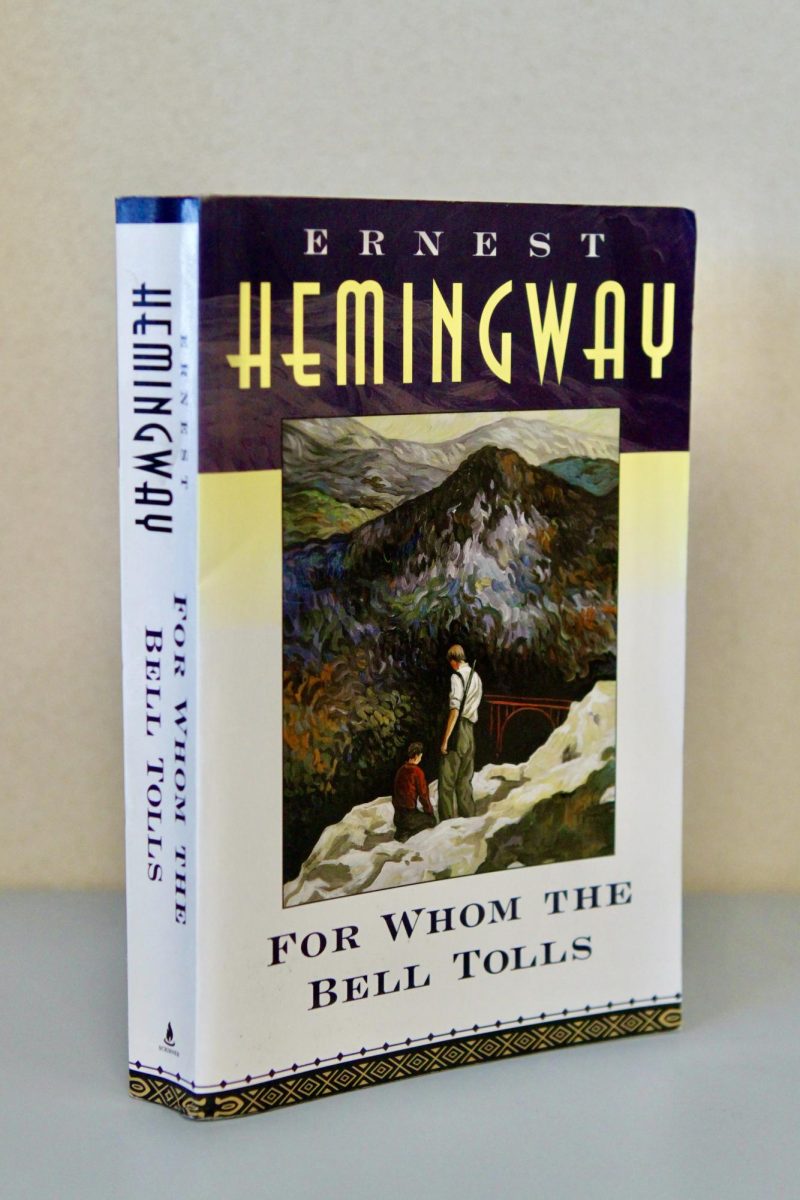For a long time, one of my favorite poems has been “For Whom the Bell Tolls” by the old English poet John Donne.
Donne wrote the poem in 1624, part of a grand collection of poetry titled “Devotions upon Emergent Occasions,” a meditation upon his own death. He lies in bed, knowing the end is near, and he hears off in the distance the church bells chime, signaling the end of a funeral. Donne is brought to the sobering realization that there truly is no escaping death.
The poem’s concept is grim – I know – and his ode to biblical syntax and word order is overly pedantic. But, believe it or not, “For Whom the Bell Tolls” is a poem that ironically will not go away. For example, it is the basis of the “Halloween” movie franchise, and anything else that focuses on the inevitability of death.
And of course, Donne’s poem is also the basis of Hemingway’s magnum opus, “For Whom the Bell Tolls.”
Hemingway’s work focuses on estranged and somewhat contemplative men who find themselves at odds with the world. They always toe the line between simultaneously loving their adventurous worlds and fearing the ominous dangers that lurk.
Hemingway’s prolific achievement in “For Whom the Bell Tolls” is his development of Robert Jordan as one of the most interesting characters I have ever read. Robert is an American who travels to Spain during their civil war and volunteers his life for the socialist cause. His ultimate task is to blow up the bridge connecting the Spanish city of Segovia to the road with Madrid.
The way Hemingway develops Robert, however, lies in philosophies.
Much like the man contemplating his life on his deathbed in Donne’s poem, Robert is surrounded by death and destruction constantly circling his head, as if he can not quite shake the stench of it. The very nature of his work lies in killing the fascist opposition for his own beliefs, coming to the final conclusion that death is not only unavoidable but the “necessary sin.”
I am sitting there, reading Robert’s thoughts, which are ultimately connected to Hemingway’s own beliefs, and I am amazed. To avoid giving away too much about the novel, it is hard not to look at Robert and find in his surefire proclivity towards death a form of evil that cannot be excused as he humanizes his enemy and takes new perspectives regarding them.
Thinking about death at times is unavoidable. I remember being little and deathly afraid of resurrection because it contrasted everything I thought about life and death. I have never actually been able to grasp the concept of me just not being here, living and walking on this planet.
Hemingway uses eternal anxiety to bring forth a book that asks the question: how do you live with death? Robert Jordan’s character is one designed entirely to formulate a possible conclusion to this question, but his problem is left inconclusive, much like in real life. There truly is no way to conquer death. The inability to do so is a sin.
“For Whom the Bell Tolls” will stand as a classic for many centuries, the grim nature of its philosophizing never escaping recognition. I understand the irony in saying that, in itself, Hemingway’s work will be immortalized; however, deep down, I think that was his point from the very beginning.


